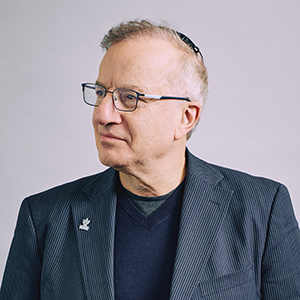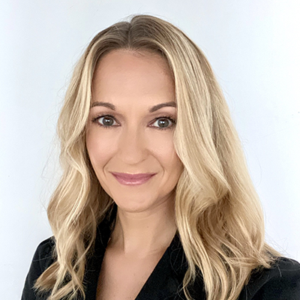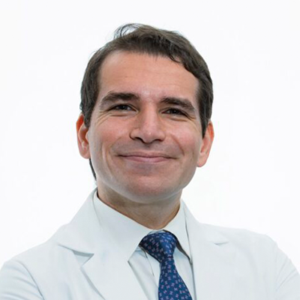Day 1 – Tuesday, May 6
REGISTRATION & BADGE PICKUP
CHALLENGE KICKOFF & TUTORIAL
Therapeutic Actionability AI Challenge (RECORDED)




Even after receiving a diagnosis, rare disease patients often face a daunting, arduous, multi-year therapeutic odyssey to identify plausible treatments. We are launching the Therapeutic Actionability AI Challenge to invite participants to tackle this pressing issue by building an automated system leveraging technologies such as LLM agents to transform a patient’s genetic diagnosis into a personalized, therapeutic actionability report. Successful submissions to this competition, due in November 2025, will address a wide spectrum of therapeutic paths, from identifying approved targeted therapies to exploring drug repurposing opportunities and highlighting candidates for cutting-edge interventions like gene therapy. Join us to learn more about the challenge goals and key biomedical and technical resources that teams can leverage for this task. This session will also include a hands-on tutorial on how to use Hugging Face tools.
Learn more about the Therapeutic Actionability AI Challenge
This challenge is supported by the Dunleavy Foundation.
OPENING REMARKS

Editor-in-Chief, NEJM AI
PANEL 1
The Economics of AI

Editor-in-Chief, Second Opinion

Senior Lecturer, Harvard Medical School


MultiCare Connected Care
Ultimately AI services are a new expenditure in healthcare. Whether this additional expenditure gets bundled into existing services or is maintained as a supplemental and separate service will determine many of the incentives for innovation and dissemination of AI tools in healthcare. In this panel, experts from both sides of the reimbursement and value proposition for AI will discuss likely drivers in the near term perspective.
FIRESIDE CHAT 1
AI-Driven Drug and Device Development



Editor-in-Chief, NEJM AI

A fireside chat with three remarkable leaders in AI-driven drug and device development from industry and academia about accelerating progress and remaining hurdles.
BREAK
WELCOME DINNER & REGISTRATION
Come pick up your badge and enjoy dinner to the music of local band Jibaro Pop Trio.
Day 2 – Wednesday, May 7
BREAKFAST & LATE REGISTRATION (OPTIONAL: SUKI ROUNDTABLE)
AI is uniquely poised to address critical healthcare challenges, from alleviating physician burnout to boosting the bottom line. Join this discussion led by Punit Soni on what AI technologies are being implemented across healthcare, the practical challenges of integrating AI, scaling across the entire organization, showing the impact, and what the future trends might look like.
REMARKS

OPENING KEYNOTE
Designing Health Data Management Systems that Benefit Patients and Society

Former Professor of Surgery, Harvard Medical School
AI tools have the potential to accelerate progress in healthcare delivery and research. These tools depend upon comprehensive, accurate and timely data from the clinical care environment for their development and ongoing surveillance. This talk will address the current state of clinical data access and quality, and outline strategies that can improve our ability to acquire fit-for-purpose data for health indications.
PANEL 2
Accelerating the Learning Health Systems Flywheel with AI


Professor, Mount Sinai Icahn School of Medicine

Director, Center for Healthcare Innovation & Delivery Science, NYU Langone Health

Director, UC San Diego Center for Learning Health Systems Science
The integration of learning health systems and artificial intelligence presents substantial opportunity to improve healthcare delivery by creating create continuous feedback loops between clinical practice and research. The goal of enabling healthcare organizations to systematically learn from every patient interaction while maintaining the highest standards of care requires innovation in data integration, workflow optimization, and organizational change management. We’ll discuss what the current state of learning health systems with particular attention to the impact of AI on their future.
COFFEE BREAK
INVITED TALK 1
Where AI is Actually Saving Lives: LLM-Based Clinical Decision Support in LMICs

Quality of care is a far greater challenge in low- and middle-income countries (LMICs) than many realize. In Kenya, primary care clinicians are responsible for the full spectrum of urgent and routine care—from tropical diseases to chronic conditions to acute emergencies. This level of breadth is nearly unheard of in high-income settings, making it an impossible cognitive load for any individual clinician to manage alone. Even the most dedicated and well-trained providers lack access to instant, up-to-date clinical guidance, leading to significant gaps in diagnosis and treatment. At Penda Health, we have developed and implemented an LLM-based Clinical Decision Support System (CDSS) designed to improve clinical quality at scale.
This talk will discuss real-world implementation, quality challenges in LMICs, our LLM-CDSS solution, early pilot data demonstrating impact, improvements in care between active and control groups, and a patient case where the AI-CDSS significantly improved clinical decision-making and outcomes.
LUNCH (OPTIONAL: MOUNT SINAI HEALTH SYSTEM ROUNDTABLE)
Drop by the Mount Sinai Health System Roundtable for a discussion of alignment between the medical school and health system on AI priorities, and a sneak peek into how they are organizing their work. Led by Nicholas Gavin and Girish Nadkarni.
PANEL 3
How is AI Affecting the Workforce?

Professor, Mount Sinai Icahn School of Medicine

Equity Scholar, Duke AI Health

University of Pennsylvania School of Nursing

Large language models and other new AI-based innovations have shaken up almost every area of clinical care in a matter of just a few years. As we gain a better understanding of this ‘influx of AI’, increasingly more attention is paid to the effects it has had on the diverse roles that humans play in healthcare. In this panel, we focus on these effects that pertain to the healthcare workforce, and particularly on the nursing workforce. We will hear from several leaders in nursing informatics (both applied and research-oriented) who have seen these effects first-hand. This discussion will include both a retrospective look at successes and failures as well as perspectives on how AI will continue to alter the workforce.
COFFEE BREAK
POSTER SESSION
- Odd numbered posters from 3:00-4:00 PM
- Even numbered posters from 4:00-5:00 PM
BREAK
DINNER BANQUET & BOMBA DANCE SHOW
Bomba is a unique genre of music and an essential expression of Puerto Rican culture that reflects the island’s African heritage. Bomba’s influence on Puerto Rican culture is as long-standing and profound as the island’s African heritage. Being one of the first genres of music that was unique to Puerto Rico, it’s easy to see Bomba’s rhythms and traditions make their way through plena, reggaeton, salsa, and other music. Come enjoy the live percussion, songs and dance performance of Bomba Evolución from 6:00-6:45pm.
Day 3 – Thursday, May 8
BREAKFAST (OPTIONAL: PETERSON HEALTH TECHNOLOGY INSTITUTE ROUNDTABLE)
Drop by the Peterson Health Technology Institute Roundtable to discuss how health system purchasers of AI/ML solutions do and should measure impact and ROI. Led by Prabhjot Singh.
FIRESIDE CHAT 2
Patients Build the Future of Health AI



Founder, OpenAPS

AI & Informatics Strategist, OpenNotes Lab
Healthcare revolutions of the past 50 years began with patients who refused to accept the status quo. Meet patients who have successfully sparked past revolutions to create transparent, open, and humane systems in health technology. Learn how these expert patients are using and building AI to shape the future with their communities.
SPOTLIGHT TALK 1
The AI Agent in the Room: Informing Objective Decision Making at the Transplant Selection Committee

Associate Professor of Medicine, University of Toronto
Our study explores the use of a multidisciplinary AI Transplant Selection committee (AI-SC) composed of large language models to improve objectivity in liver transplant (LT) decision-making, demonstrating high accuracy in identifying transplant eligibility and contraindications. The findings highlight AI’s potential to enhance equity and consistency in LT selection, marking a significant step toward reducing subjectivity in this critical medical process.
SPOTLIGHT TALK 2
In the Absence of Gold Standards: Defining Best Practices from Collective Physician Behavior

When clear guidelines are absent, physician decisions can vary widely. We introduce Community Risk Intuition (CRI), a machine learning approach that identifies patterns in physician behavior to offer decision support in uncertain clinical scenarios, as demonstrated in ulcerative colitis management.
QUICK BREAK
YEAR IN REVIEW

Medical Director for AI, NewYork-Presbyterian
This Year in Review session will explore key themes in AI deployment into the clinic over the past year, supported by notable papers and real-world case studies. We will discuss both highlights and lowlights, examining what has worked, what hasn’t, and why. Through a review of impactful research and major events, this session will provide a critical perspective on the state of clinical AI and where it is headed next.
LUNCH (OPTIONAL: GENENTECH ROUNDTABLE)
Engage in an interactive conversation with the Genentech team to explore how AI can deepen our understanding of the patient journey and lead to more inclusive clinical trials. We will delve into AI’s ability to unlock the potential of multimodal data sources, discuss key considerations for patients and health systems, and offer insights into Genentech’s work and career paths for attendees. Led by Jenny Fisher and Tom Willgoss.
SPOTLIGHT TALK 3
AI Simplification of Health Information Needs More Than Just Grade-Level Reduction

Large language models have transformed health communication, with AI-simplified medical texts already being deployed in clinical settings. This talk will examine the implementation challenges of AI text simplification in healthcare, demonstrate the limitations of traditional readability formulas, and propose a framework for multimodal evaluation, which we have applied to assessment of AI-simplified cardiovascular disease information and surgical consent forms. Drawing on these case studies, we will discuss the importance of tailoring evaluation methods for specific audiences to ensure that simplified materials enhance patient understanding and promote health equity.
SPOTLIGHT TALK 4
Evaluating the Impact of Retraining on a Deployed Clinical Machine Learning Model

University of Toronto
Simulation studies suggest that machine learning models may become less accurate after deployment because they affect the data used for model updates. This study examines the real-world impact of an inpatient deterioration model on clinician actions, patient outcomes, and model performance after retraining
SPOTLIGHT TALK 5
How an AI-Based Cardiovascular Screening Test Changed Care at 8 Hospitals: A Million Inferences Later

Medical Director for AI, NewYork-Presbyterian
Early detection of structural heart disease (SHD), including cardiomyopathies and valvular disease, is a foundational goal of cardiology but cost and availability of gold-standard tools like echocardiography prohibit widespread screening. We present EchoNext, the first AI model to detect all causes of SHD. We will discuss findings to date, implementation challenges, and the initiation of CACTUS: the largest cardiovascular AI randomized control trial in the US to date, testing the impact on new diagnoses among 54,000 patients in 8 emergency departments in 2025.
INVITED TALK 2
OpenEvidence: Medical AI at Scale in the Real World

OpenEvidence is now used regularly by hundreds of thousands of clinicians across every specialty, each engaging on average once per day. In this talk, I will share our learnings about what real-world clinician usage of AI looks like—insights into how clinicians use AI, how they adapt over time, and what this can teach us about the evolving role of human expertise in a world with intelligent tools. Throughout, I will touch base with the concrete, actual realities of modern AI and explore how to tap into the practical value of AI in healthcare on the ground and in the trenches. Along the way, I will highlight some of the key details that have driven adoption, and challenges we have overcome.
COFFEE BREAK
INVITED TALK 3
Transforming Biomedicine with AI Physician-Scientists

Recent developments in agentic, multimodal models with strong reasoning capabilities herald the development of AI physician-scientists. This talk will discuss some of the recent progress towards this and lay out how such capable AI systems might help accelerate disease understanding, develop new cures, and make healthcare accessible to everyone, everywhere.
PANEL 4
What Should Medical Journals Be Publishing About AI?


Editor-in-Chief, NEJM AI

Professor of Dermatology, Harvard Medical School


Director, Center for Quantitative Health, Massachusetts General Hospital
Professor of Psychiatry, Harvard Medical School

What should be published in the fast moving field of AI in medicine? How should we distinguish between checkpoints in performance as compared to clinically validated trials? Why and when should retrospective validations be reported? Hear answers and ask your own questions of editors from leading AI in medicine journals.
BREAK
DINNER BANQUET
Join us for a beachside dinner with live music from local pianist Edgardo Ojeda.
DAY 4 – Friday, May 9
BREAKFAST (OPTIONAL: GOOGLE ROUNDTABLE)
Drop by to have a conversation with Google researchers and engineers working on open weight models (see goo.gle/hai-def) and more. Led by Yun Liu and Fereshteh Mahvar
DEBATE 1
AI Transparency

Director, OpenNotes Lab


Co-Lead, Health AI Partnership
AI has greatly benefited from decades of academic research projects that release code and software as open source. This allows others to verify the code and easily extend it for new purposes. However, this kind of transparency does not always exist in the healthcare space where commercial entities need to protect their intellectual property. This can limit AI software evaluation that is so important for building trust for clinical decision support. This debate will explore both sides of the AI transparency issue and its impact on patient care.
DEBATE 2
The Utility of Working with Doctors



Senior Deputy Editor, NEJM AI
Is it necessary for AI researchers to work with clinicians to do the most meaningful work in medical AI? Join us for this intentionally-contentious debate to hear both sides of the argument.
QUICK BREAK
PANEL 5
Build vs Buy?


Associate Professor, Harvard Medical School

Associate Professor & Associate Chief, UCSF

John C. Malone Endowed Chair & Associate Professor, Johns Hopkins University
This panel will explore the critical decisions that hospital systems face when adopting AI: whether to develop in-house models tailored to their specific needs or purchase externally-developed solutions. Experts from health systems and industry will discuss the trade-offs, including data access, customization, cost, regulatory considerations and long-term sustainability. The panel will provide insights into how organizations navigate these choices, balancing innovation with operational feasibility in both predictive and generative AI applications.
LUNCH (OPTIONAL: GSK ROUNDTABLE)
Join the GSK roundtable to discuss patient, HCP and regulatory considerations in developing ML-based SaMD to predict and help manage drug side effects. Led by Noam Livnat.
END OF PROGRAM
8:30-10:30 PM
OPTIONAL ON MAY 9TH: LAGUNA GRANDE BIOLUMINESCENCE KAYAK NIGHT TOUR
Join other SAIL attendees for a 2-hour kayak tour to experience the rare phenomenon of bioluminescence in Laguna Grande, one of 3 bio-bays found in Puerto Rico (and only 5 worldwide!). The glowing effect in the water is caused by dinoflagellates—microscopic organisms that emit a bluish-green neon glow in reaction to movement in the water. When planning your visit to this natural wonder, keep in mind that the glowing effect is better appreciated on dark nights, the later the better!
Plan to depart the hotel by 7:15 PM and arrive in Fajardo by 8:00 PM. Transportation must be arranged separately.
Limited spaces remaining. Call +1-787-245-4545 to buy tickets and reference group code “SAIL”. Go to https://kayakingpuertorico.com/home/tours/bio-bay-kayak-tour/#1480108911067-bedc615c-e84b for more info.
($55 per person plus tax. Children under the age of 6 are not permitted.)
9:00 AM-3:00 PM
OPTIONAL ON MAY 10TH: CULEBRA CATAMARAN & SNORKEL TOUR DAY TRIP
Join other SAIL attendees for a snorkeling and beach day trip to the famous Flamenco Beach on the island of Culebra. Snorkeling equipment and floating devices are provided, along with lunch, snacks, cocktails, beer and assorted beverages.
Plan to depart the hotel by 7:15 AM to arrive in Fajardo by 8:15 AM for the boat departure. Transportation must be arranged separately.
Go to https://eastislandpr.com/tours/culebra-island/ for more info and to buy tickets.
($142.50 per adult, $122.50 per child ages 4-11. Children under the age of 4 are not permitted. Use promo code “SAIL10” for discounted price.)

